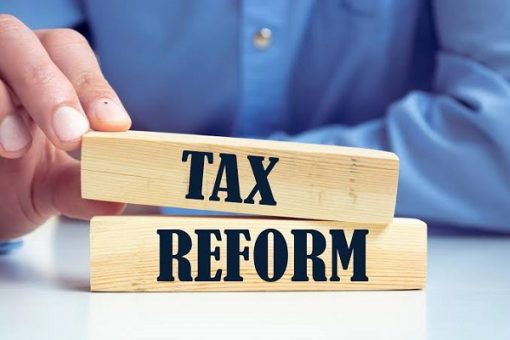
President Bola Ahmed Tinubu’s signing into law of four landmark tax reform bills on June 26, 2025, has sparked widespread commendation, with the Nigerian Economic Summit Group (NESG) emerging as one of the latest institutions to express strong support. The NESG, a leading private sector think-tank, hailed the reforms as a critical step towards a more transparent, efficient, and inclusive fiscal system that can drive economic growth and restore public trust.
In its official publication, the NESG highlighted Nigeria’s longstanding fiscal challenges—including low tax revenue, an overdependence on oil income, a burdensome tax structure, and inefficient collection systems. It stressed that the 2025 tax reforms mark a significant turning point, aiming to simplify tax laws, broaden the tax base, and reduce the compliance burden on individuals and businesses.
The journey to these reforms began with the inauguration of the Presidential Committee on Fiscal Policy and Tax Reforms in July 2023, chaired by fiscal expert Mr. Taiwo Oyedele. The committee was mandated to deliver swift wins within 30 days, implement critical reforms within six months, and roll out long-term strategies within a year—all designed to increase Nigeria’s tax-to-GDP ratio to 18 percent without stifling growth.
The new tax laws are poised to offer significant relief to low-income earners and small businesses. Exemptions now apply to wages, essential goods, and job-loss compensation, while small enterprises earning below N50 million annually benefit from simplified processes and reduced levies. For large businesses, input tax credits and digitalisation offer benefits, albeit with stricter compliance expectations.
Among the most impactful changes are the restructuring of the Value Added Tax (VAT) regime, the digitalisation of tax processes, and the establishment of oversight institutions such as a Tax Tribunal and Tax Ombudsman. These measures are designed to foster transparency, improve revenue collection, and protect taxpayer rights.
However, the reforms have not come without contention. Southern states like Lagos and Rivers have opposed aspects of the new VAT regime—particularly the centralisation of VAT collection—due to fears of losing control over internally generated revenue. In contrast, several Northern states, wary of a derivation-based sharing formula, fear potential cuts to their federal allocations under the new consumption-based revenue model.
Private sector stakeholders have also voiced concerns about the introduction of a Development Levy and new excise taxes on services. Informal sector actors and small businesses fear that digital compliance measures—such as e-invoicing and audits—may impose operational burdens. Civil society groups have warned that without transparent implementation, the reforms could exacerbate hardship amidst high inflation and poverty levels.
Despite these concerns, the NESG maintains that the overarching objectives of the reforms are sound. The laws aim to:
Increase revenue mobilisation by raising the tax-to-GDP ratio to 18 percent over five years.
Simplify and harmonise tax laws for easier compliance.
Establish the Nigeria Revenue Service (NRS) to oversee national revenue collection.
Promote transparency through digital processes, a Tax Tribunal, and a Tax Ombudsman.
Protect vulnerable groups by exempting essentials like food and medicine from VAT.
Strengthen federal-state collaboration through a Joint Revenue Board and improved revenue-sharing mechanisms.
The NESG concluded that while implementation remains a key challenge, the success of the reforms hinges on inclusivity, accountability, and a commitment to fostering a healthier tax culture nationwide. With these new laws, Nigeria is poised to enter a new fiscal era—one that could unlock economic resilience, improve governance, and attract sustainable investment.
Comments